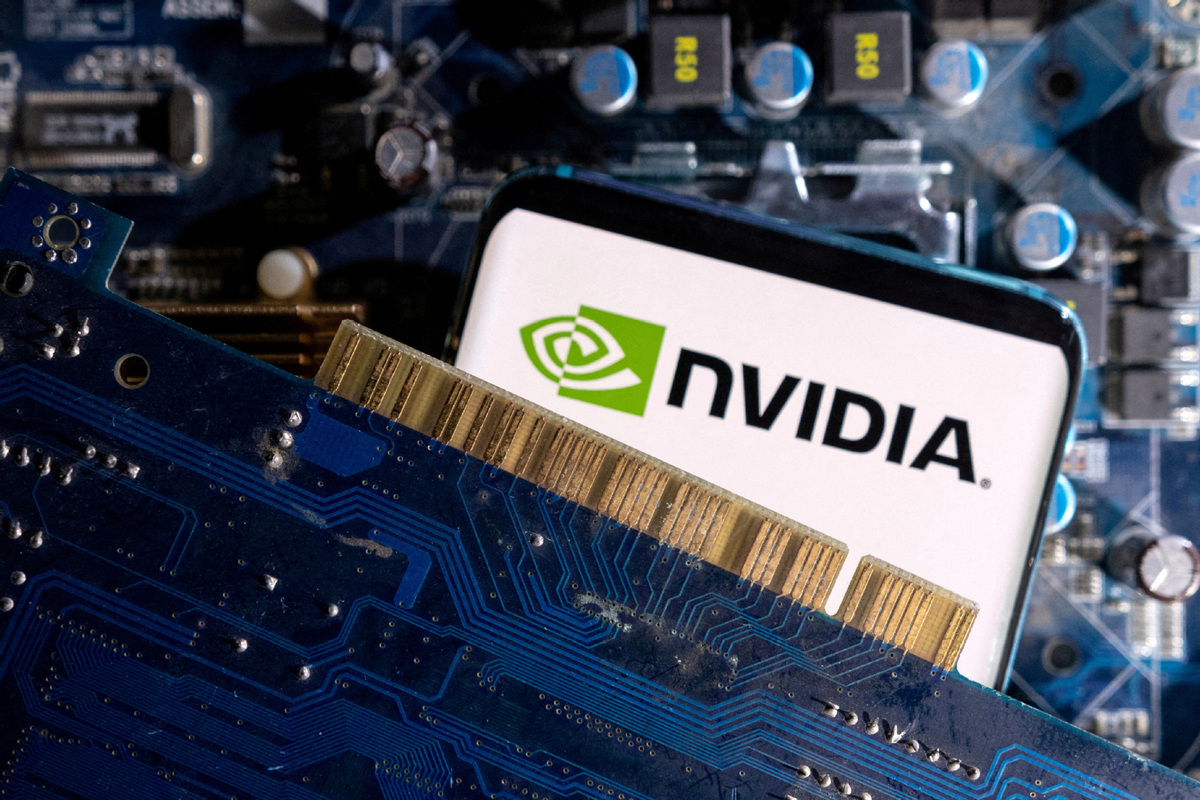US talks with Nvidia reflect vital China role






Reported discussions between authorities in the United States and Nvidia Corp on the sale of artificial intelligence chips to China prove that the nation is an important market for the growth of several US tech giants, and that politically motivated controls by the US will only cause huge losses to multinational companies, industry experts said on Tuesday.
The comments come after Reuters quoted US Commerce Secretary Gina Raimondo as saying that Nvidia "can, will and should" sell AI chips to China, but not the most sophisticated ones.
Just a week ago, Raimondo had warned chip manufacturers including Nvidia at a forum. She said that if any company tries to circumvent US export rules by redesigning a chip that would enable China to make strides in AI, she was going to ban the new chips "the very next day".
Xiang Ligang, director-general of the Information Consumption Alliance, a telecom industry association in Beijing, said Raimondo's latest remarks reflect how vital the Chinese market is to the success of US tech giants.
"Though the US government wants to restrict the export of AI chips to China, it has to consider the interests of US companies," Xiang said.
Highlighting the large size of the Chinese chip market, he said that "no business is willing to sacrifice benefits and incur financial losses for the sake of biased political reasons".
"The fact is that politically motivated US controls also spurred Chinese tech and internet companies to stock more varieties of AI chips rather than the products of just one manufacturer, and many of the companies are also accelerating the development of their own chips to avoid potential risks in the future," he added.
When asked how the Commerce Department would respond to a recent chip-making breakthrough in China, Raimondo said the US will take the "strongest possible" action to protect its "national security".
Foreign Ministry spokeswoman Mao Ning said at a news conference on Tuesday that China is firmly opposed to the abuse of export control measures by the US, which has seriously damaged the legitimate rights and interests of Chinese companies.
These measures are also not conducive to the stability of global chip production and supply chains, and violate the principles of market economy and fair competition, she said, emphasizing that they are not in the interests of any party.
US officials have repeatedly said the country has no intention of "decoupling" from China or obstructing China's economic development, she said, adding that the US should honor these commitments.
Last year, China's semiconductor purchases totaled $180 billion, accounting for around a third of the worldwide total of $555.9 billion, consolidating the country's status as the largest single market for semiconductors, according to the Semiconductor Industry Association.
For instance, the Chinese market currently accounts for around 20 percent of Nvidia's total sales.
Jensen Huang, CEO of Nvidia, said last week that the company is working closely with the US government to ensure that new chips for the Chinese market are compliant with the export curbs.
Though Nvidia is a dominant supplier of AI chips to the Chinese market, Huang said earlier this year that companies such as Huawei Technologies are among a slew of "very formidable" competitors to Nvidia in the race to produce the best AI chips.
Nori Chiou, investment director at White Oak Capital, said in an interview that the original goal of the US was to slow down China's AI capabilities but, in fact, related actions have boosted China's self-development capability.
Many Chinese cloud giants are working on building their AI ecosystems without US chips due to these restrictions, he said.
Tao Qing, spokeswoman for the Ministry of Industry and Information Technology, said in October that China will step up the development of AI chips as part of efforts to promote fundamental technological breakthroughs in AI and introduce applications of the cutting-edge technology in more sectors.
For instance, Chinese tech giant Tencent Holdings has a self-developed AI chip, Zixiao, which is focused on processing images, videos and natural languages.
Huawei Technologies, on the other hand, is gaining momentum with its Ascend 910B.
Baidu Inc also said earlier this year that the US government's chip export controls will have limited impact on the company in the near term, as its chip reserves, as well as other alternatives, will be sufficient to support several AI-native apps for end users.





























